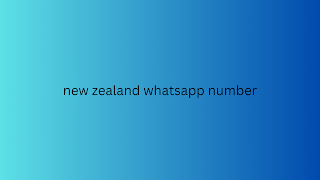Shell was the first to use the term in the Netherlands
Posted: Sun Dec 22, 2024 5:33 am
The 3 Ps are now used by many companies in the Netherlands. Each P is given substance and the overlap between the various components is examined (see figure 1).
People, Planet, Profit
Figure 1: Visualization of People, Planet, Profit
Greenwashing
Within this model, there is a chance that companies or organizations present themselves as greener or more socially responsible than they actually are. This is called greenwashing . In the case of greenwashing, the company communicates that it is sustainable or socially involved, but the core of the company is still polluting or violating human rights.
Not every organization that engages in greenwashing does so consciously. In many cases, the company wants to do something social, but does not realize that the core process needs to be adjusted to actually be socially responsible.
When it is possible to adapt the core process, the social value that is created is credible and anchored in the company. This anchoring is realized if profit is made within the Planet and People boundary conditions. This is visualized in figure 2. Economic development (Profit) is possible within the social boundary conditions (People). These social boundary conditions can only exist within the ecological boundary conditions (Planet).
Planet, People, Profit
Figure 2: Profit within the People and Planet boundary new zealand whatsapp number conditions. Source: Duurzamestudent.nl
Based on this model, I present a proposition to the interviewees: if you really want to do social or societal entrepreneurship, you do not look for the balance between the elements People, Planet and Profit. You go for maximum profit within the boundary conditions People and Planet. Do (social) entrepreneurs see it that way too?

Fish Tales
Bart van Olphen: “Taking fish from the ocean must be correct at a marine biological level. For example, the fish stock must be and remain at the right level, and fish must be caught in such a way that it does not harm nature. In addition, everything must be registered and traceable. The authentic fishing method 'rod and hook' is one of the most important methods to be able to continue fishing in the future. That is why we invest in fishing communities in developing countries that fish with rod and hook. Fish Tales helps these fishermen, for example, by financing ice machines and freezers and obtaining and maintaining MSC certification. This gives the fishermen more opportunities to market their fish. This is mainly done under the Fish Tales label, but that is not mandatory. The fishermen can market their fish as they wish.
People, Planet, Profit
Figure 1: Visualization of People, Planet, Profit
Greenwashing
Within this model, there is a chance that companies or organizations present themselves as greener or more socially responsible than they actually are. This is called greenwashing . In the case of greenwashing, the company communicates that it is sustainable or socially involved, but the core of the company is still polluting or violating human rights.
Not every organization that engages in greenwashing does so consciously. In many cases, the company wants to do something social, but does not realize that the core process needs to be adjusted to actually be socially responsible.
When it is possible to adapt the core process, the social value that is created is credible and anchored in the company. This anchoring is realized if profit is made within the Planet and People boundary conditions. This is visualized in figure 2. Economic development (Profit) is possible within the social boundary conditions (People). These social boundary conditions can only exist within the ecological boundary conditions (Planet).
Planet, People, Profit
Figure 2: Profit within the People and Planet boundary new zealand whatsapp number conditions. Source: Duurzamestudent.nl
Based on this model, I present a proposition to the interviewees: if you really want to do social or societal entrepreneurship, you do not look for the balance between the elements People, Planet and Profit. You go for maximum profit within the boundary conditions People and Planet. Do (social) entrepreneurs see it that way too?

Fish Tales
Bart van Olphen: “Taking fish from the ocean must be correct at a marine biological level. For example, the fish stock must be and remain at the right level, and fish must be caught in such a way that it does not harm nature. In addition, everything must be registered and traceable. The authentic fishing method 'rod and hook' is one of the most important methods to be able to continue fishing in the future. That is why we invest in fishing communities in developing countries that fish with rod and hook. Fish Tales helps these fishermen, for example, by financing ice machines and freezers and obtaining and maintaining MSC certification. This gives the fishermen more opportunities to market their fish. This is mainly done under the Fish Tales label, but that is not mandatory. The fishermen can market their fish as they wish.